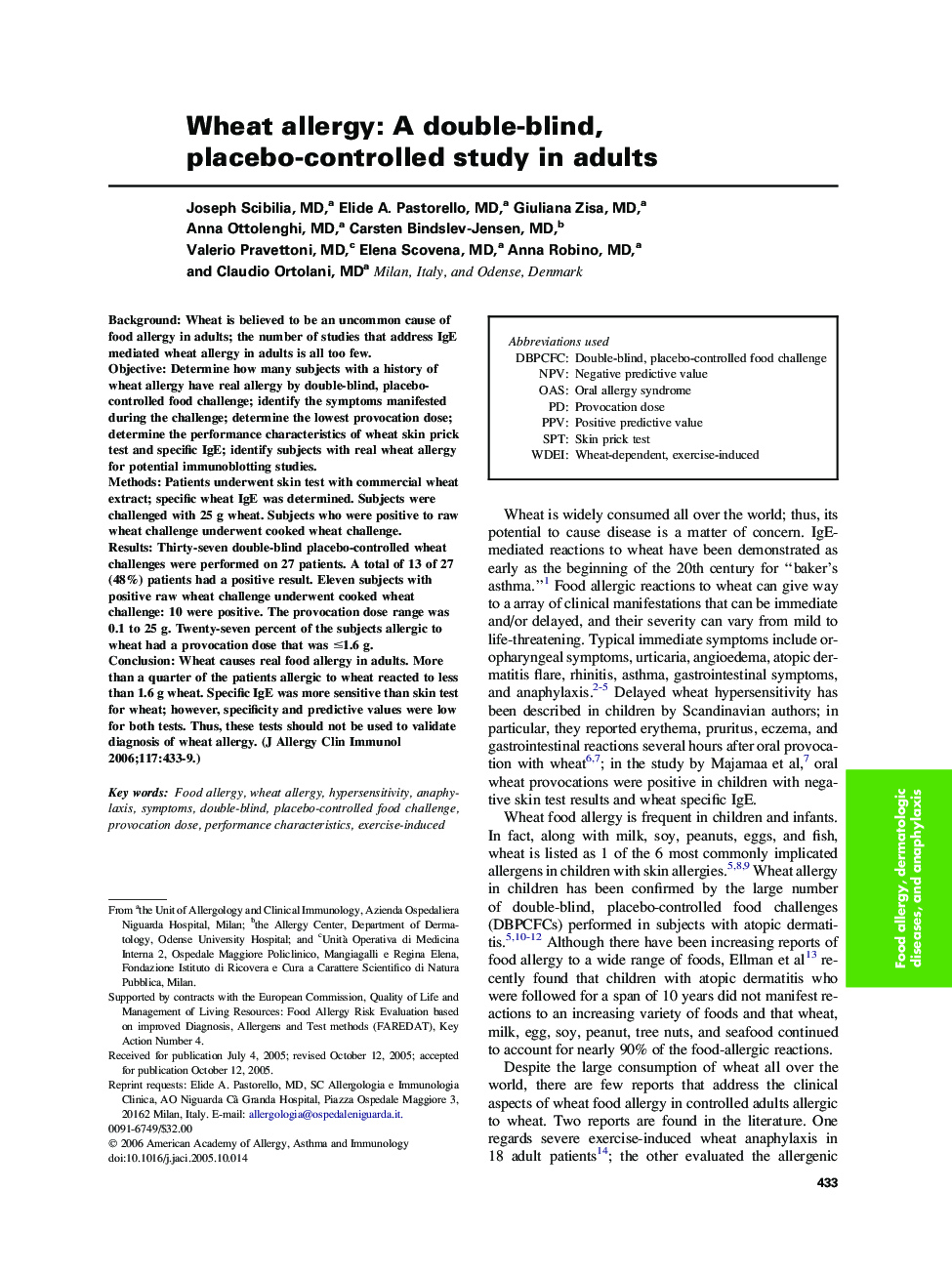| Article ID | Journal | Published Year | Pages | File Type |
|---|---|---|---|---|
| 3203274 | Journal of Allergy and Clinical Immunology | 2006 | 7 Pages |
BackgroundWheat is believed to be an uncommon cause of food allergy in adults; the number of studies that address IgE mediated wheat allergy in adults is all too few.ObjectiveDetermine how many subjects with a history of wheat allergy have real allergy by double-blind, placebo-controlled food challenge; identify the symptoms manifested during the challenge; determine the lowest provocation dose; determine the performance characteristics of wheat skin prick test and specific IgE; identify subjects with real wheat allergy for potential immunoblotting studies.MethodsPatients underwent skin test with commercial wheat extract; specific wheat IgE was determined. Subjects were challenged with 25 g wheat. Subjects who were positive to raw wheat challenge underwent cooked wheat challenge.ResultsThirty-seven double-blind placebo-controlled wheat challenges were performed on 27 patients. A total of 13 of 27 (48%) patients had a positive result. Eleven subjects with positive raw wheat challenge underwent cooked wheat challenge: 10 were positive. The provocation dose range was 0.1 to 25 g. Twenty-seven percent of the subjects allergic to wheat had a provocation dose that was ≤1.6 g.ConclusionWheat causes real food allergy in adults. More than a quarter of the patients allergic to wheat reacted to less than 1.6 g wheat. Specific IgE was more sensitive than skin test for wheat; however, specificity and predictive values were low for both tests. Thus, these tests should not be used to validate diagnosis of wheat allergy.
